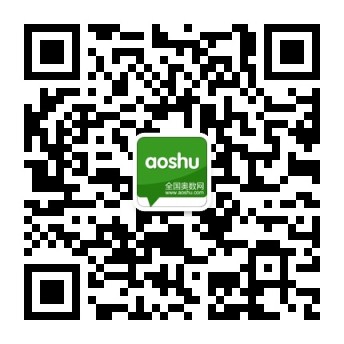奥数郑州站 > 小升初 > 模 拟 题 > 小升初英语题 > 正文
来源:郑州奥数网整理 2012-08-10 17:57:12

语法在英语中占的至关重要的位置,所以,对语法的复习非常重要。下面是英语语法的复习资料指导,并有相关联系,希望对小升初的同学们有帮助。
一、名词复数规则
1.一般情况下,直接加-s,如:book-books,bag-bags,cat-cats,bed-beds
2.以s.x.sh.ch结尾,加-es,如:bus-buses,box-boxes,brush-brushes,watch-watches
3.以“辅音字母+y”结尾,变y为i,再加-es,如:family-families,strawberry-strawberries
4.以“f或fe”结尾,变f或fe为v,再加-es,如:knife-knives
5.不规则名词复数:
man-men,woman-women,policeman-policemen,policewoman-policewomen,mouse-mice
child-children
foot-feet,.tooth-teeth
fish-fish,people-people,Chinese-Chinese,Japanese-Japanese
写出下列各词的复数
I_________him_________this___________her______
watch_______child_______photo________diary______
day________foot________book_______dress________
tooth_______sheep______box_______strawberry_____
thief_______yo-yo______peach______sandwich______
man______woman_______paper_______juice___________
water________milk________rice__________tea__________
二、一般现在时
一般现在时基本用法介绍
【No.1】一般现在时的功能
1.表示事物或人物的特征、状态。如:Theskyisblue.天空是蓝色的。
2.表示经常性或习惯性的动作。如:Igetupatsixeveryday.我每天六点起床。
3.表示客观现实。如:Theearthgoesaroundthesun.地球绕着太阳转。
一般现在时的构成
1.be动词:主语+be(am,is,are)+其它。如:
Iamaboy.我是一个男孩。
2.行为动词:主语+行为动词(+其它)。如:
WestudyEnglish.我们学习英语。
当主语为第三人称单数(he,she,it)时,要在动词后加"-s"或"-es"。如:MarylikesChinese.玛丽喜欢汉语。
一般现在时的变化
1.be动词的变化。
否定句:主语+be+not+其它。
如:Heisnotaworker.他不是工人。
一般疑问句:Be+主语+其它。
如:-Areyouastudent?
-Yes.Iam./No,I'mnot.
特殊疑问句:疑问词+一般疑问句。如:Whereismybike?
2.行为动词的变化。
否定句:主语+don't(doesn't)+动词原形(+其它)。如:
Idon'tlikebread.
当主语为第三人称单数时,要用doesn't构成否定句。如:
Hedoesn'toftenplay.
一般疑问句:Do(Does)+主语+动词原形+其它。如:
-Doyouoftenplayfootball?
-Yes,Ido./No,Idon't.
当主语为第三人称单数时,要用does构成一般疑问句。如:
-Doesshegotoworkbybike?
-Yes,shedoes./No,shedoesn't.
特殊疑问句:疑问词+一般疑问句。如:Howdoesyourfathergotowork?
动词+s的变化规则
1.一般情况下,直接加-s,如:cook-cooks,milk-milks
2.以s.x.sh.ch.o结尾,加-es,如:guess-guesses,wash-washes,watch-watches,go-goes
3.以“辅音字母+y”结尾,变y为i,再加-es,如:study-studies
一般现在时用法专练:
一、写出下列动词的第三人称单数
drink________go_______stay________make________
look_________have_______pass_______carry____
come________watch______plant_______fly________
study_______brush________do_________teach_______
二、用括号内动词的适当形式填空。
1.Heoften________(have)dinnerathome.
2.DanielandTommy_______(be)inClassOne.
3.We_______(notwatch)TVonMonday.
4.Nick_______(notgo)tothezooonSunday.
5.______they________(like)theWorldCup?
6.What_______theyoften_______(do)onSaturdays?
7._______yourparents_______(read)newspaperseveryday?
8.Thegirl_______(teach)usEnglishonSundays.
9.SheandI________(take)awalktogethereveryevening.
10.There________(be)somewaterinthebottle.
11.Mike_______(like)cooking.
12.They_______(have)thesamehobby.
13.Myaunt_______(look)afterherbabycarefully.
14.Youalways_______(do)yourhomeworkwell.
15.I_______(be)ill.I’mstayinginbed.
16.She_______(go)toschoolfromMondaytoFriday.
17.LiuTao_______(do)notlikePE.
18.Thechildoften_______(watch)TVintheevening.
19.SuHaiandSuYang_______(have)eightlessonsthisterm.
20.-Whatday_______(be)ittoday?
-It’sSaturday.三、按照要求改写句子
1.DanielwatchesTVeveryevening.(改为否定句)
___________________________________________________
2.Idomyhomeworkeveryday.(改为一般疑问句,作否定回答)
________________________________________________________
3.Shelikesmilk.(改为一般疑问句,作肯定回答)
___________________________
4.Amylikesplayingcomputergames.(改为一般疑问句,作否定回答)
___________________________________________________
5.Wegotoschooleverymorning.(改为否定句)
_______________________________________________________
6.HespeaksEnglishverywell.(改为否定句)
___________________________________________________
7.Iliketakingphotosinthepark.(对划线部分提问)
________________________________________________________
8.JohncomesfromCanada.(对划线部分提问)
___________________________________________________
9.Sheisalwaysagoodstudent.(改为一般疑问句,作否定回答)
________________________________________________________
10.SimonandDaniellikegoingskating.(改为否定句)
___________________________________________________
五、改错(划出错误的地方,将正确的写在横线上)
1.IsyourbrotherspeakEnglish?__________________
2.Doeshelikesgoingfishing?__________________
3.Helikesplaygamesafterclass.__________________
4.Mr.WuteachsusEnglish.__________________
5.Shedon’tdoherhomeworkonSundays._________________
三、现在进行时
1.现在进行时表示现在正在进行或发生的动作,也可表示当前一段时间内的活动或现阶段正在进行的动作。
2.现在进行时的肯定句基本结构为be+动词ing.
3.现在进行时的否定句在be后加not。
4.现在进行时的一般疑问句把be动词调到句首。
5.现在进行时的特殊疑问的基本结构为:
疑问词不达意 + be + 主语 + 动词ing?
但疑问词当主语时其结构为:
疑问词不达意 + be + 动词ing?
动词加ing的变化规则
1.一般情况下,直接加ing,如:cook-cooking
2.以不发音的e结尾,去e加ing,如:make-making, taste-tasting
3.如果末尾是一个元音字母和一个辅音字母,双写末尾的辅音字母,再加ing,如:run-running, stop-stopping
现在进行时专项练习:
一、写出下列动词的现在分词:
play________ run__________ swim _________make__________
go_________ like________ write________ _ski___________
read________ have_________ sing ________ dance_________
put_________ see________ buy _________ love____________
live_______ take_________ come ________ get_________
stop_________ sit ________ begin________ shop___________
二、用所给的动词的正确形式填空:
1.The boy __________________ ( draw)a picture now.
2. Listen .Some girls _______________ ( sing)in the classroom .
3. My mother _________________ ( cook )some nice food now.
4. What _____ you ______ ( do ) now?
5. Look . They _______________( have) an English lesson .
6.They ____________(not ,water) the flowers now.
7.Look! the girls ________________(dance )in the classroom .
8.What is our granddaughter doing? She _________(listen ) to music.
9. It’s 5 o’clock now. We _____________(have)supper now
10.______Helen____________(wash )clothes? Yes ,she is .
三、句型转换:
1. They are doing housework .(分别改成一般疑问句和否定句)
_____________________________________________________________
_____________________________________________________________
2.The students are cleaning the classroom . ( 改一般疑问句并作肯定和否定回答)
_________________________________________________________________
_________________________________________________________________
3.I’m playing the football in the playground .(对划线部分进行提问)
_________________________________________________________________
4.Tom is reading books in his study . (对划线部分进行提问)
_________________________________________________________________
四、将来时理论及练习
一、概念:表示将要发生的动作或存在的状态及打算、计划或准备做某事。句中一般有以下时间状语:tomorrow, next day(week, month, year…),soon, the day after tomorrow(后天)等。
二、基本结构:①be going to + do;
②will+ do.
三、否定句:在be动词(am, is, are)l后加not或情态动词will后加not成won’t。
例如:I’m going to have a picnic this afternoon.→ I’m not going to have a picnic this afternoon.
四、一般疑问句: be或will提到句首,some改为any, and改为or,第一二人称互换。
例如:We are going to go on an outing this weekend. → Are you going to go on an outing this weekend?
五、对划线部分提问。一般情况,一般将来时的对划线部分有三种情况。
1. 问人。Who 例如:I’m going to New York soon. →Who’s going to New York soon.
2. 问干什么。What … do.例如: My father is going to watch a race with me this
afternoon. →What is your father going to do with you this afternoon.
3. 问什么时候。When.例如:She’s going to go to bed at nine. →When is she going
to bed?
六、同义句:be going to = will
I am going to go swimming tomorrow(明天). = I will go swimming tomorrow.
练习:
填空。
1. 我打算明天和朋友去野炊。
I_____ _______ _________ have a picnic with my friends.
I ________ have a picnic with my friends.
2. 下个星期一你打算去干嘛? 我想去打篮球。
What ________ ________ _________ _________ _________ next Monday? I _______ ______ _____ play basketball.
What _________ you do next Monday? I ________ play basketball.
3. 你妈妈这个周末去购物吗?是,她要去买一些水果。
_____ your mother _______ ________ go shopping this ___________?
Yes, she _________. She ______ ________ __________ buy some fruit.
4. 你们打算什么时候见面。
What time _______ you _________ __________ meet?
改句子。
5. Nancy is going to go camping.(改否定)
Nancy ________ going to go camping.
6. I’ll go and join them.(改否定)
I _______ go ______ join them.
7. I’m going to get up at 6:30 tomorrow.(改一般疑问句)
________ _______ ________ to get up at 6:30 tomorrow?
8. We will meet at the bus stop at 10:30.(改一般疑问句)
_______ ________ meet at the bus stop at 10:30.
9. She is going to listen to music after school.(对划线部分提问)
________ _______ she ________ ________ _________ after school?
10. My father and mother are going to see a play the day after tomorrow.(同上)
_________ _________ going to see a play the day after tomorrow.
用所给词的适当形式填空。
11. Today is a sunny day. We ___________________ (have) a picnic this afternoon.
12. My brother _______________ (go) to Shanghai next week.
13. Tom often ______________(go) to school on foot. But today is rain. He ______________ (go) to school by bike.
14. What do you usually do at weekends? I usually __________ (watch) TV and ____________(catch) insects?
15. It’s Friday today. What _____she _________ (do) this weekend? She ______________ (watch) TV and _____________ (catch) insects.
16. What ___________ (d0) you do last Sunday? I ____________ (pick) apples on a farm. What ______________ (do) next Sunday? I ______________ (milk) cows.
17. Mary ____________ (visit) her grandparents tomorrow.
18. Liu Tao ____________ (fly) kites in the playground yesterday.
19. David ______________ (give) a puppet show next Monday.
20. I ________________ (plan) for my study now
五、一般过去时
1.一般过去时表示过去某个时间发生的动作或存在的状态,常和表示过去的时间状语连用。一般过去时也表示过去经常或反复发生的动作感谢。
2.Be动词在一般过去时中的变化:
⑴am 和is在一般过去时中变为was。(was not=wasn’t)
⑵are在一般过去时中变为were。(were not=weren’t)
⑶带有was或were的句子,其否定、疑问的变化和is, am, are一样,即否定句在was或were后加not,一般疑问句把was或were调到句首。
3.句中没有be动词的一般过去时的句子
否定句:didn’t +动词原形,如:Jim didn’t go home yesterday.
一般疑问句:在句首加did,句子中的动词过去式变回原形。
如:Did Jim go home yesterday?
特殊疑问句:⑴疑问词+did+主语+动词原形?
如: What did Jim do yesterday?
⑵疑问词当主语时:疑问词+动词过去式?
如:Who went to home yesterday?
动词过去式变化规则:
1.一般在动词末尾加-ed,如:pull-pulled, cook-cooked
2.结尾是e加d,如:taste-tasted
3.末尾只有一个元音字母和一个辅音字母的重读闭音节,应双写末尾的辅音字母,再加-ed,如:stop-stopped
4.以“辅音字母+y”结尾的,变y为i, 再加-ed,如:study-studied
5.不规则动词过去式:
am,is-was, are-were, do-did, see-saw, say-said, give-gave, get-got, go-went, come-came, have-had, eat-ate, take-took, run-ran, sing-sang, put-put, make-made, read-read, write-wrote, draw-drew, drink-drank, fly-flew, ride-rode, speak-spoke, sweep-swept, swim-swam, sit-sat
过去时练习
写出下列动词的过去式
is\am_________ fly_______ plant________ are ________
drink_________ play_______ go________ make ________
does_________ dance________ worry________ ask _____
taste_________ eat__________ draw________ put ______
throw________ kick_________ pass_______ do ________
Be动词的过去时练习(1)
Name ____________ No. ______ Date __________
一、 用be动词的适当形式填空
1. I _______ at school just now.
2. He ________ at the camp last week.
3. We ________ students two years ago.
4. They ________ on the farm a moment ago.
5. Yang Ling ________ eleven years old last year.
6. There ________ an apple on the plate yesterday.
7. There ________ some milk in the fridge on Sunday.
8. The mobile phone _______ on the sofa yesterday evening.
二、句型转换
1. It was exciting.
否定句:________________________________________________
一般疑问句:____________________________________________
肯、否定回答:__________________________________________
2. All the students were very excited.
否定句:________________________________________________
一般疑问句:____________________________________________
肯、否定回答:__________________________________________
3. They were in his pocket.
否定句:________________________________________________
一般疑问句:____________________________________________
肯、否定回答:__________________________________________
Be动词的过去时练习(2)
Name ____________ No. ______ Date __________
一、用be动词的适当形式填空
1. I ______ an English teacher now.
2. She _______ happy yesterday.
3. They _______ glad to see each other last month.
4. Helen and Nancy ________ good friends.
5. The little dog _____ two years old this year.
6. Look, there ________ lots of grapes here.
7. There ________ a sign on the chair on Monday..
8. Today _____ the second of June. Yesterday ______ the first of June. It _____ Children’s Day. All the students ______ very excited.
二、句型转换
1. There was a car in front of the house just now.
否定句:________________________________________________
一般疑问句:____________________________________________
肯、否定回答:__________________________________________
肯、否定回答:__________________________________________
-------------------------------------------------------------------------------------
编辑推荐:
关注奥数网官方微信 数学资料、数学真题、更有全国教育资讯 微信搜索“奥数网”或扫描二维码即可添加


欢迎扫描二维码
关注奥数网微信
ID:aoshu_2003

欢迎扫描二维码
关注中考网微信
ID:zhongkao_com